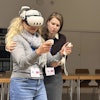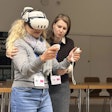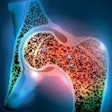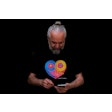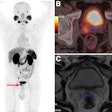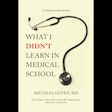
LONDON (Reuters), Apr 18 - Britain launched an investigation on Wednesday into claims that former workers at a state-owned nuclear plant who died between 1962 and 1991 may have had body parts removed without consent.
Unions representing workers in the nuclear industry say as many as 70 people who worked at the Sellafield nuclear fuel reprocessing plant in northern England and other nuclear facilities may have had tissue, bones and organs removed for radiological testing.
"Some of these cases go back 45 years. It is simply not possible therefore today to be sure whether procedures were carried out properly," Trade and Industry Minister Alistair Darling told parliament. "A fuller investigation is therefore necessary."
Darling said senior lawyer Michael Redfern would carry out an independent inquiry into the case.
Redfern led a similar investigation into the Alder Hey hospital in Liverpool, northern England, which found in January 2001 that a rogue doctor had systematically and illegally stripped internal organs from hundreds of dead children whilst lying to their parents and families.
British Nuclear Group (BNG), which runs Sellafield, said its records show that body parts were taken for scientific analysis but said it had evidence for almost all cases that this was done on a legally correct basis. It said the sampling began in the 1960s and ended in the early 1990s.
"Files exist at Sellafield for 65 cases," it said in a statement. "An examination of the data has shown that in 56 of those cases the sampling was done associated with coroners' postmortems or inquests. In five other cases it was done under instruction from other legally correct bases, such as family solicitors."
There was no record of consent for the remaining four cases, it said, but added: "This does not mean that appropriate requests were not made."
But Darling said he wanted the inquiry to find out more.
"It is necessary to establish why these examinations were carried out and whether or not the next of kin were informed and consented to this analysis," he said.
"It is also necessary to establish whether or not these examinations were carried out following the correct and proper procedures and whether the data obtained was used appropriately and with the necessary consents."
Most of the workers involved were employed at Sellafield, but one had worked at the Capenhurst nuclear site in central England before transferring to Sellafield. Six worked at Aldermaston, Britain's nuclear weapons research centre, and one at the Springfields nuclear site in northwest England.
By Kate Kelland
Last Updated: 2007-04-18 12:14:38 -0400 (Reuters Health)
Related Reading
'Hot' patients setting off radiation alarms, January 29, 2007
Copyright © 2007 Reuters Limited. All rights reserved. Republication or redistribution of Reuters content, including by framing or similar means, is expressly prohibited without the prior written consent of Reuters. Reuters shall not be liable for any errors or delays in the content, or for any actions taken in reliance thereon. Reuters and the Reuters sphere logo are registered trademarks and trademarks of the Reuters group of companies around the world.



